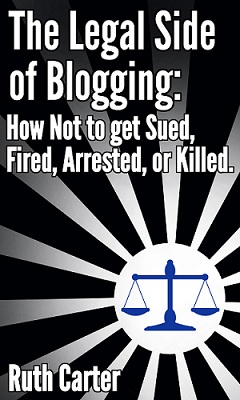
Ever since I heard about the Turner Barr story in 2013, I’ve been on everyone I know – including recreational bloggers and the vloggers – to register their trademarks in at least their sites’ names with the U.S. Patent and Trademark Office (USPTO). If this isn’t on your to-do list for this year, take a break from reading this post and go add it right now.
For those of you who don’t know or don’t remember, Turner Barr started an awesome blog called Around the World in 80 Jobs where he writes and creates videos about his travel adventurers and how he works from place to place. It was a simple but brilliant idea. He didn’t register his trademark. I bet the thought never crossed his mind. I bet he never thought that another company would register the trademark “Around the World in 80 Jobs” and essentially shut down his site. Thankfully, Turner was able to resolve the situation in part by publicly calling out the people he suspected stole his idea. He has since registered the trademark for his blog.
When I saw this situation where it looked like another company ripped off an individual blogger’s idea and name for themselves and basically (temporarily) stole it out from under him by registering the trademark, I became scared for every person I know who has an amazing blog or vlog. I don’t want to see them in the same predicament. It also reminded me to be a diligent about reminding and re-reminding my clients who are startup entrepreneurs about the importance or registering their trademarks so they don’t end up in the Burger King situation.
This is the type of situation potentially where someone can steal your idea and you will have to fight to try to get it back. And it’s the type of situation that is easily prevented by registering your trademark first. Once you have a registered trademark with the USPTO, you can stop other people and companies from using a name that is confusingly similar to yours in your industry.
Compared to the heartache, headaches, and what you will pay a lawyer if you end up in a situation like Turner Barr did, filing at trademark application is cheap. The USPTO recently lowered their filing fees so if you did your application yourself (which I don’t recommend) it may cost you only $275. If you’ve never filed the trademark application before, I suggest you at least consult a trademark attorney in advance just so you understand the trademark process including what information you have to give the examining attorney to prove that you’re using your trademark. It may not be as expensive as you fear.
And just to show that I put my money were my mouth is and that the shoemaker’s children have shoes in this situation, I recently submitted a trademark application myself for my personal blog, The Undeniable Ruth. I want to be able to call myself “undeniable” for the rest of my life and this is the first step to ensuring that.
If you have questions or want to talk about your trademark needs, feel free to connect with me on Twitter, Facebook, LinkedIn, or you can send me an email.









